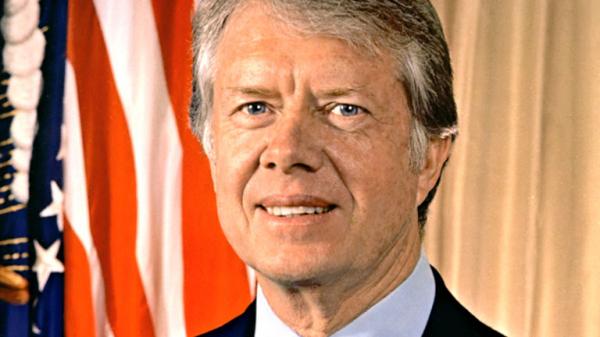Ten Ways That Carter Influenced Translation — and Vice Versa

Can translation shape a presidency? As I argue in a new book, Found in Translation, it can influence the world as we know it. So, it shouldn’t be difficult to believe that translation affects the oval office in more ways than most people realize. Likewise, the commander-in-chief has extraordinary power to shape policy related to translation and language in general.
In preparation for a talk I will be delivering at the Jimmy Carter Presidential Library in Atlanta, I decided to explore this question further. In doing so, I discovered many interesting links between translation and President Carter. Here are 10 of the most significant:
1. A historic moment takes place for sign language interpreting. When Carter accepted the Democratic presidential nomination, a sign language interpreter appeared on nationwide television for the very first time. This marked an important and groundbreaking moment, as it helped to highlight awareness of the deaf population living in the United States.
2. Interpreter heroes from World War II receive overdue recognition. Carter’s inaugural parade in 1977 was an important national event for recognition of members of the Navajo Code Talkers, who marched with pride. Without them, the war would likely have had a very different outcome. After many years of scant recognition for their service, this was a welcome change.
3. A foreign policy mishap highlights interpreters’ importance. The newly sworn-in president traveled to Poland to make an important speech. The interpreter had not been provided with a copy of the speech, had to stand in freezing rain for two hours, and faced various other challenges. He interpreted, “my desires for the Polish people” as “my lusts for the Polish people.” The incident caused great embarrassment, to say the least.
4. Carter begins using interpreters to win over the foreign press. By the following year, speechwriters were consulting regularly and more strategically with interpreters. Carter’s chief speechwriter called presidential interpreter Harry Obst to request a strong sentence that Carter could pronounce in German for a keynote speech at the Airlift Memorial in Berlin. The interpreter came up with the clever rhyming phrase, “Was immer sei, Berlin bleibt frei” (No matter what, Berlin will remain free). It was received by the media and appeared in many headlines the following day.
5. Interpreters — and individuals with limited English — finally get their day in court. In October 1978, Carter signed the Court Interpreters Act, establishing the right of any individual involved in federal proceedings to have a certified court interpreter if needed due to a language barrier.
6. Support strengthens for sign language interpreters. One month later, Carter signed the Disabilities Act of 1978, a predecessor to the Americans with Disabilities Act, significantly increasing access to interpreters for the deaf. In the law, the word “interpreters” is mentioned 16 times.
7. The president uses translation to court Latino voters. In an interview for Televisa in 1979, when Carter was asked about the importance of Spanish speakers in the United States, he responded about his support for the language, even delivering part of his answer in Spanish. Later that year, when he visited Mexico, he delivered an entire speech, translated ahead of time, in Spanish.
8. An interpreter makes the president sound too good to be true. In a speech at a small Methodist college in Japan shortly after leaving the White House in 1981, Carter began his speech with a joke. The interpreter delivered it in Japanese, and the audience erupted in laughter. Impressed with the interpreter’s skill, he asked how the interpreter managed to get such a laugh. Eventually, the interpreter admitted that he had said, “President Carter told a funny story. Everyone must laugh.”
9. Carter takes no chances with interpreters during a crisis situation. Having learned plenty of lessons about working with interpreters, the former president was extremely careful during the North Korean nuclear crisis in 1994. Rather than rely on the Korean interpreters provided there, he brought along his own interpreter in order to ensure that his interpreter could verify that his words were being conveyed as he intended.
10. In his peace-building activities today, he continues crossing language barriers. Today, the Carter Center, which is active in more than 50 countries around the world, relies on translation and interpreters in order to bridge communication gaps and diffuse conflict situations.
Of course, these are not the only ways in which Carter shaped the fields of translation and interpreting, and there are many other examples of how these professions influenced him too. I’ll be sharing more of them during my talk at the Carter Library. But for now, these examples serve to highlight how important translation and interpreting can be — which is particularly important as America contemplates who will be its next president — and the world watches, in many languages.
Оставить комментарий
Для комментирования необходимо войти через ![]() Вконтакте
Вконтакте
